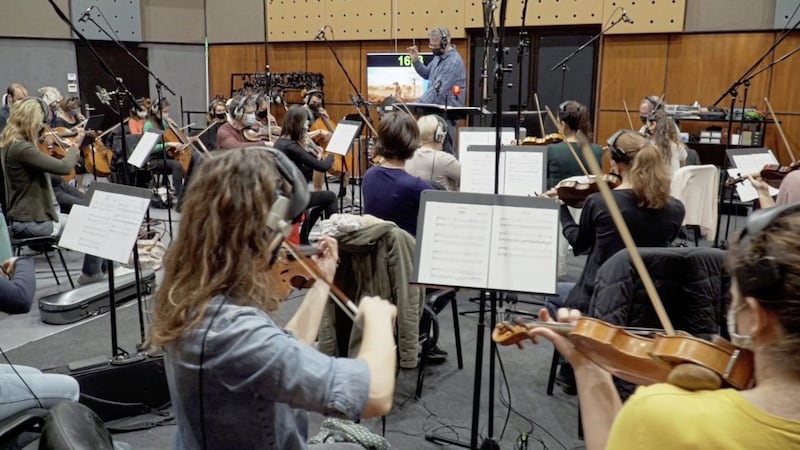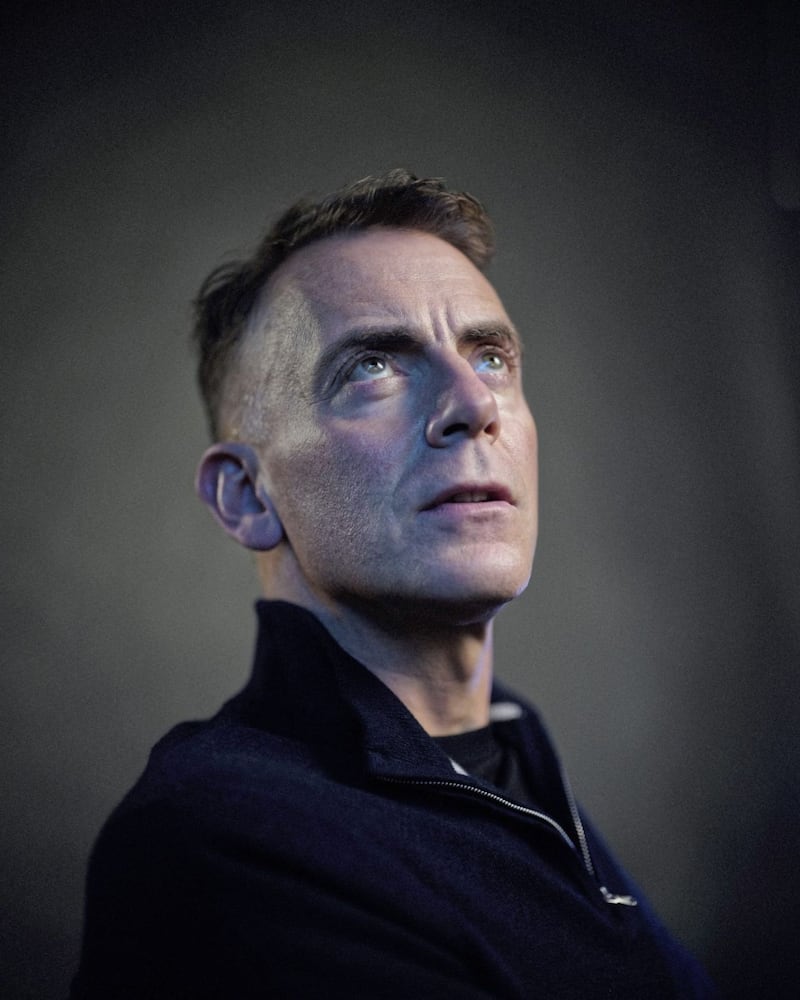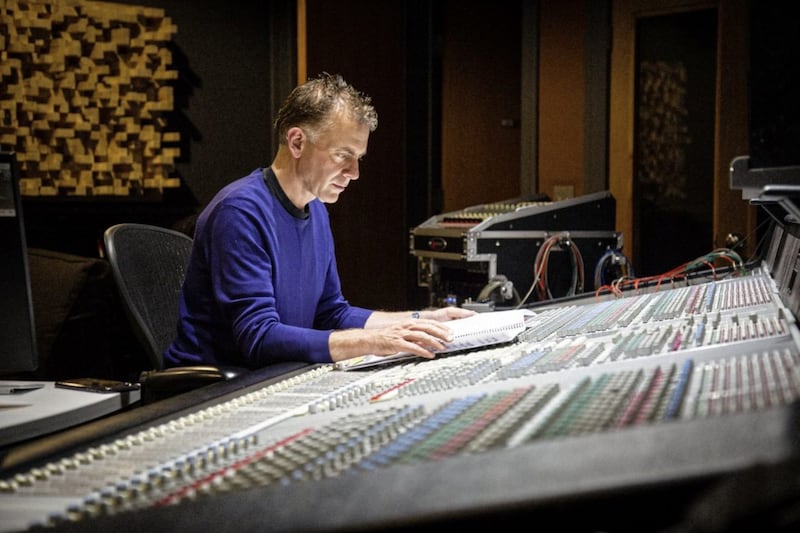MUSIC matters. Belfast-born composer Sheridan Tongue (54), who has just won a prestigious regional Emmy for scoring PBS documentary feature The Last Artifact, believes he knows why.
"It's a great language, it nourishes the soul in a way that other arts cannot."
Tongue really feels Victorian critic Walter Pater was on the money when he wrote that all art aspires to the condition of music.
"It's true, you don't need to know anything about musical form to enjoy it."
The Emmy itself, which he says will look good above his Wilhelm Schimmel upright piano, hasn't yet arrived. When it does, Tongue and his American wife Pam, a mechanical engineer, will be throwing a big party to celebrate.
"It's a real honour. Unbeknownst to me, producer Jaime Jacobsen entered me for the award. It should be here in a few weeks. I'll be inviting the musicians to this celebration, who are so much part of my soundtrack," he says.

Tongue got into the business when he was still a pupil at the Royal Belfast Academical Institution and, because he believes in the power of his art, returns to his old school to conduct workshops for the students there.
"My passion for music started there when I was a teenager," he says.
"I was in the concert band and orchestra and had a saxophone quartet. My clarinet teacher was Arthur Acheson, with whom I'm still in touch. He taught me sax too and was a great influence."
Asked what advice he'd give to a young person thinking about entering the music business, Tongue says: "I think you need to keep your options open. There are so many opportunities now, don't limit yourself."
He got onto the first rung by hard work, IT knowledge and enthusiasm. As a teenager he formed a sax quartet, Saxophone Madness, featuring Tongue alongside fellow City of Belfast School of Music students Jonathan Halton, Drew Leckie and Brian Lighthowler.
The group regularly busked in the city centre, often based outside British Home Stores, which kept a pitch for them as they attracted such good crowds.

"The best night was Christmas Eve, and we would make about £400, which wasn't bad for the 80s. We'd come away with £100 each and I put my share towards buying new kit and instruments," he remembers.
Meerkat Manor, a BBC America documentary on the cute critters with elongated necks we all love, is Tongue's latest project. Listening to excerpts of his score, it's clear he knows how to suggest animal magic, via great melody and, in the background, full orchestration.
Some of the music is also a bit like Elton John's great soundtrack for The Lion King.

"Thanks, I'll take that," says Tongue.
You can't help wondering how composers' minds are wired and where the notes come from. Tongue explains how it works for him.
"Ideas come to me in musical form and I can put things down via my phone," he explains.
At the risk of over-analogising, there are also nice 'scurrying' musical passages that seem to reference Mozart and the busiest – and best – score ever, the overture to The Marriage of Figaro.
The composer says he'll take that compliment too, revealing later that Mozart is one of his favourite composers.
If you wonder what forms a music-maker of such deft ability, the answer might be that it is an inherited skill. His father, the conductor Alan Tongue, had a distinguished career at BBC Northern Ireland, working as a music producer.
"He brought people like The Chieftains here," explains the musician's musician son.
"He and my mother Madeleine came to the orchestral version of my music for the Spotlight show at the Ulster Hall and he said he was proud."

In tough professional times, you need those with profile to step up to the mark and highlight concerns. Tongue certainly has profile – he played keyboards with Robert Plant on a version of The Song Remains The Same. He has held concerts with fellow musicians to help fund them during austerity and admits to being frustrated by the lack of governmental support for the performing arts.
Tongue's work includes music relating to Northern Ireland's troubled history, including an insightful score which accompanied the BBC Spotlight series on the conflict here.
"I used some unusual instruments, including a big metal oil drum which reflected the aggression in the conflict, but not an Irish instrument," he says, claiming it would have pushed the music in the "wrong direction".
So what sort of music does Tongue relax to, either at home in London or the States?
"I listen to what I am working on, usually, but I also like Dylan," he says.
Lockdown has in some ways proved creatively fruitful: "We've had more time, time to reflect."
The pandemic lockdowns and restrictions have been particularly tough on the creative industries, but Tongue is hopeful that the arts will survive and come through stronger:
"There will be new opportunities when we come through this, I think," he says.

As we draw our Zoom conversation to a close, Bella, the Tongues' 11-year-old bearded Collie, heads into frame and settles herself on a white sofa. Apparently she relaxes, maybe even falls asleep, while Tongue produces award-winning music – something he'll be doing for the rest of the day.
So, what music would Sheridan Tongue like to make his exit to? He mentioned the fact he likes Mozart when we discussed the fact the composer's music apparently helps epileptics.
After a brief pause for thought, he says: "I would like the piece I composed for the Helena Bonham Carter film Magnificent 7 played. It's called Waiting for Christopher."
An appropriately haunting composition...





